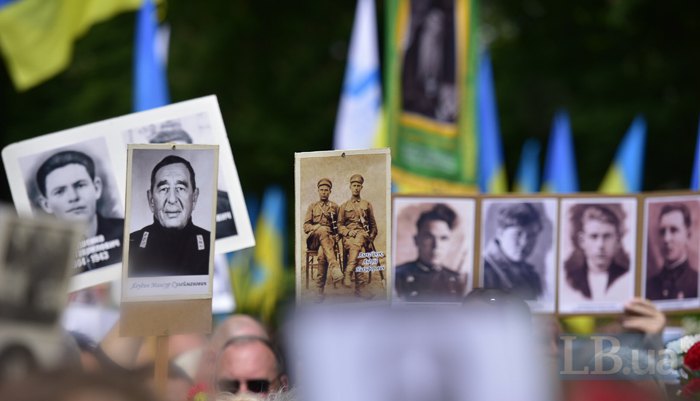
Collective memory has its own maps drawn with red lines. Those lines can be moved like on operational maps during hostilities. In 2022, several lines that have been marked with flags for a long time will inevitably move on the map of the collective memory of Ukraine. For several years now, the same event has been marked by two points at which different stories are unfolding. It seems that this year we need to do some scaling to see different landscapes in which the event can be inscribed. What is it all about? Of course, about the day of victory over Nazism.
Why and how should be remembered the event of May 8, 1945 in Ukraine? If the answer is automatically the phrase “this is our story!” - forget it, it says nothing about it. What is about - it`s why and how. Memory is based on values and questions about today and tomorrow. From real confirmed facts (and what is a fact? This is what we have documented and described; there is no description - no fact) memory builds a value-based framework for interpreting the present and vision of the future. Why remember it? To know how to live with this knowledge further.
The fact that one of the winners of the Second World War is now pulling the historical scheme with the “Nazis” and the “Great Patriotic War” to another reality, creates, to put it mildly, cognitive dissonance in us. Yes, russia has been preparing us for this for several years, but when “denazification” with all its derivatives fell on our heads, the emotional reaction of many of our compatriots was quite natural - to distance ourselves from all this memory and say “we have nothing to do with it, go away with us with your Soviet posters!”
But it seems that this is the moment when it is necessary to deal with our own relations with the past, finally bringing russia out of the players on the Ukrainian field of collective memory.
Remembrance Strategies: What Visions Are Possible in Different Military Staffs?
Let's try to describe in a couple of sentences what happened on May 8, 1945. And then let's look at different strategies for remembering the event.
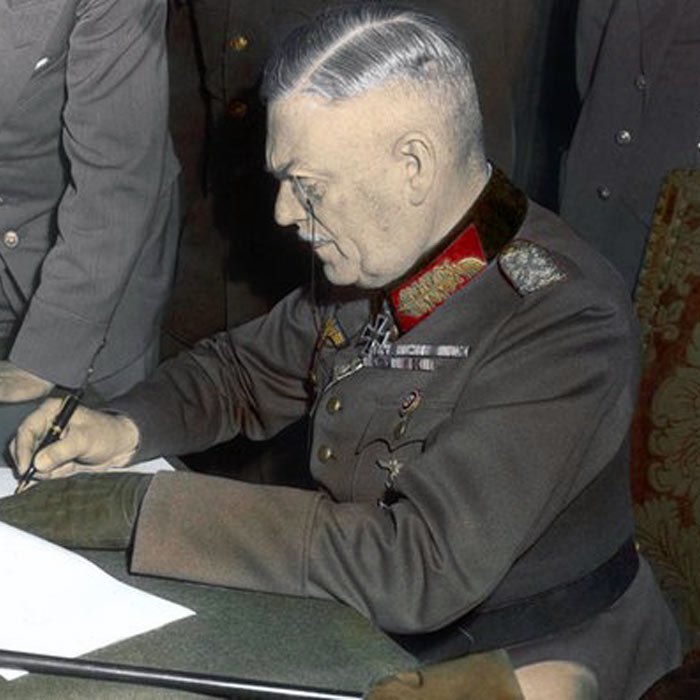
What happened? The Allies (USSR, USA, Great Britain, France) defeated Nazi Germany, stopping the development of one of the worst genocidal projects in history. Nazism is evil. The need to overcome Nazism was so obvious that allied relations with the USSR were acceptable at the time, despite an understanding of the criminal nature of the Soviet regime. Neither the United States nor Great Britain had any illusions about communism. But Nazism had to be overcome. And it was defeated.
How do you remember May 8, 1945? Let us very schematically touch on two well-established strategies that have been built for more than half a century. These two are important to us today, although there are more.
The strategy of the USSR: The USSR was treacherously attacked in 1941 by the personification of political evil - Nazi Germany. The racial theory of the Nazis foresaw the physical destruction of some peoples and the conversion of Slavs into slaves. Already at the end of the war, several allies sided with the USSR, but this did not have a decisive impact. The USSR paid an incredible price and won a timeless Great Victory, with which no military feat can be compared. The USSR learned of Germany's capitulation on May 9, so the Great Victory should be celebrated on May 9.
Western Europe / US Strategy: In 1939, Nazi Germany unleashed a world war during which inhumane, incomparable crimes were committed. The Soviet Union suffered the greatest losses. The victory over Nazism was achieved by the joint efforts of the anti-Hitler coalition and was recorded on May 8, 1945. After the war, the victors created a system of security and protection of human rights. The assertion of the uniqueness of the crimes of Nazism was to form a new political framework that would help prevent the recurrence of crimes against humanity (“Never Again”).
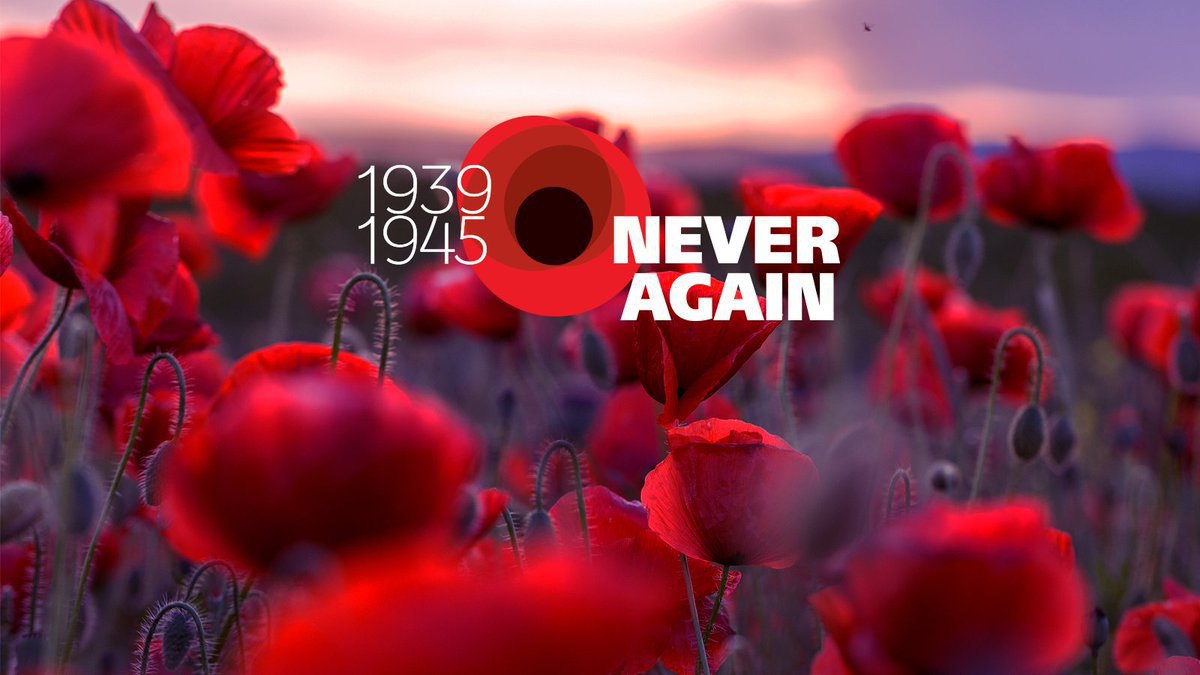
The difference is obvious. But there are some points in which these two big schemes do not differ. Nazism is evil. It was defeated. Germany lost. Among the winners were the USSR, USA, Great Britain, and France. After the war, the international security system, the United Nations, and the human rights system were established. The USSR suffered the greatest losses. The crimes of Nazi Germany are unprecedented.
We will not find a place for Ukraine at all these points of intersection. Why? Neither the USSR nor the allies saw Ukraine, it was seen exclusively as part of the Union. The memory of the Second World War is the memory of great powers and superhuman beings. For those who are not the USSR, the USA, Great Britain, or France, the place in these schemes is provided only through the fixation of the one on whose side he fought.
Russian appropriation and Ukrainian frivolity: where is our place on the European map of memory?
After the collapse of the Soviet Union, we were generally not against russia becoming the main bearer of responsibility for the Soviet past: take this scoop away, we don't need it. In the 1990s, it was perceived that russia should be responsible for political repression, totalitarianism, stagnation, punitive medicine, lack of toilet paper, shortages, and much more unpleasant. The fact that in the “package offer” russia takes away the exclusive right to be a defeater of Nazism, we were not very worried then.
Based on the fact that the post-war project of Europe and the vision of the international order are based on the path of victory over Nazism, russia retains the position of the main beneficiary (USSR = russia suffered the greatest losses) in the international arena. And the benefits are obvious. Let's remember at least the so-called "German guilt". It is still difficult for German politicians to say something out loud against russia. Yes, we all know about economic relations and so on, but that does not negate the fact that any accusation of the USSR in Germany has been denied for decades. Ukraine does not fall into the realm of “guilt” - because it is not perceived as the successor to the USSR. Automatically we are invisible to the outsiders.
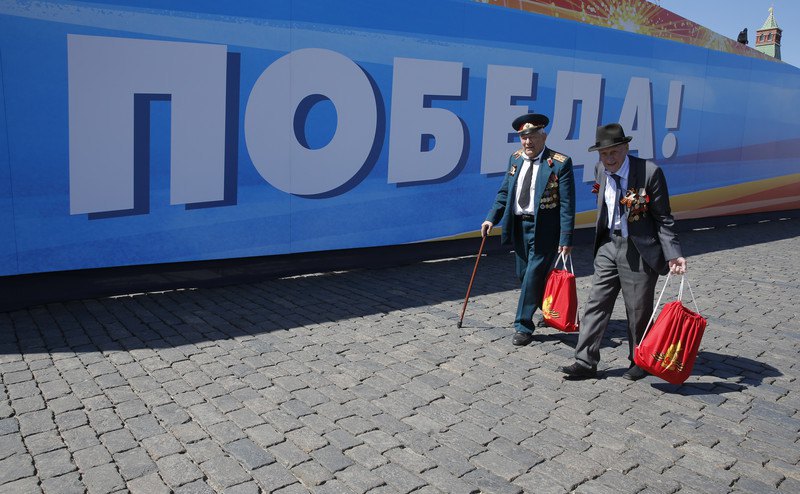
All those who aren`t russia have nothing to do with the victory. And if they have nothing to do with it, they are probably russia's opponents, and with it, the opponents of the victorious countries. Are you still amazed at the sincere conviction of many Europeans that anti-Semitism and right-wing radical ideology in Ukraine are absorbed in mother's milk? You can show the numbers of the presence of right-wing radical parties in the parliaments of European countries and Ukraine as much as you want - you will still be asked about the Lviv pogrom of 1941.
Russia has professionally appropriated the memory of the victory in World War II. The world believed and Ukraine did not resist. This perception already works at the level of automatic orientation in the past. For example, in the powerful and conceptually designed museum of the Second World War in Gdańsk, the hall dedicated to the fate of Soviet prisoners of war has a musical accompaniment - russian Orthodox church singing. This has a strong emotional effect, which reinforces reports that the prisoners were exclusively Orthodox, read - russians. Even the citadel of exclusive collective memory, Israel, has in recent years eagerly supported the demonstration of russia's exclusive right not only to victory but also to suffering in World War II (the unveiling of a monument to the Leningrad blockade of Jerusalem).
Recognition of russia as a successor to the right to defeat Nazism would not have had malignant consequences for Ukraine if it had not been for russia's conscious efforts to place Ukraine in the zone of opponents. To understand the reasons for this, it is necessary to understand the nature of the collective memory of modern russia. If for the whole world the events of 1945 are distant history, for russia they are an actual existence. This country lives in a cycle of time, which makes the events of World War II more real than today. To give meaning to life, you need to embed your actions in the heroic past and recreate it (“we can repeat”).
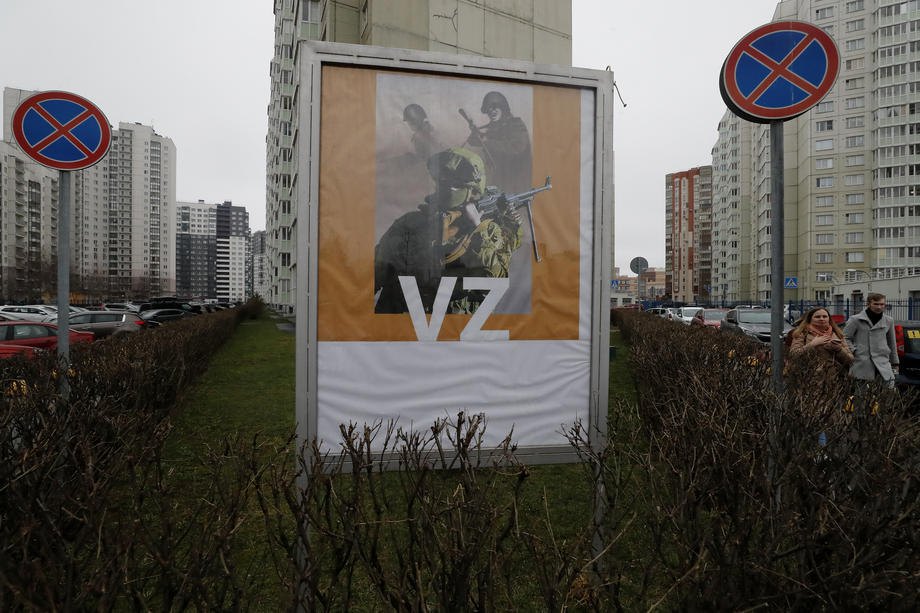
Reality will be meaningful only if the main plot of the story is constantly reproduced - we are constantly at war with the Nazis. It is both an instrument of powerful internal mobilization (the infamous 80% support for aggression against Ukraine) and the creation of the illusion of justice for the outside world. The basic coincidence of the elements of the military narrative (which were listed earlier) does not allow the conditional European to recognize a different pattern of relations with the past. Therefore, it is not surprising that even in a situation of brazen invasion, not all observers were sober.
Won war and lost peace: do we need a joint parade?
Such problems for the outside view (it can be completely different, more on this later). And what about the internal?
Let's move back to the level of facts without interpretations. What is the place of Ukraine in the events of the Second World War? World War II began for Ukraine in 1939 with the Soviet annexation of the western regions that were part of Poland. Ukraine was not a political entity at the time. Ukrainians have been fighting the Nazis since 1939 as part of the Polish Army, and since 1941 as part of the Red Army. Ukrainians also fought in the ranks of independent armed groups, some of which situationally saw Germany as an ally, and later fought against both totalitarian regimes (until the early 1950s). Ukraine has suffered terrible human and material losses due to hostilities, a separate page is the Holocaust tragedy implemented by bullets in Ukraine. After the war, Ukraine was represented at the United Nations, and the lack of political subjectivity within the USSR did not allow us to talk about the real international subjectivity of Ukraine.
There are many multidirectional vectors. Based on the fact that Ukraine inherited from the USSR the only possible version of commemoration - heroic - it is clear that it is difficult to create something holistic. In independent Ukraine, the impulse “away from Moscow” coexisted with the habits of the "May holidays". Let's celebrate both as we please. The formation of the UPA narrative coexisted with the traditional celebration of May 9. It is the lack of elaboration of the element of the state policy of memory related to Ukraine’s place in the Second World War that results in problems of irritation in society and attempts to react at the level of emotional perception/rejection. "This is a sovoc holiday”. “There is nothing to celebrate - one occupation has been replaced by another”. “The Red Army raped women”. From year to year, the turnover is growing. Russia's current attack puts an end to attempts to galvanize the Soviet way of talking about victory over Nazism. We need to speak our own message without eyeing russia.
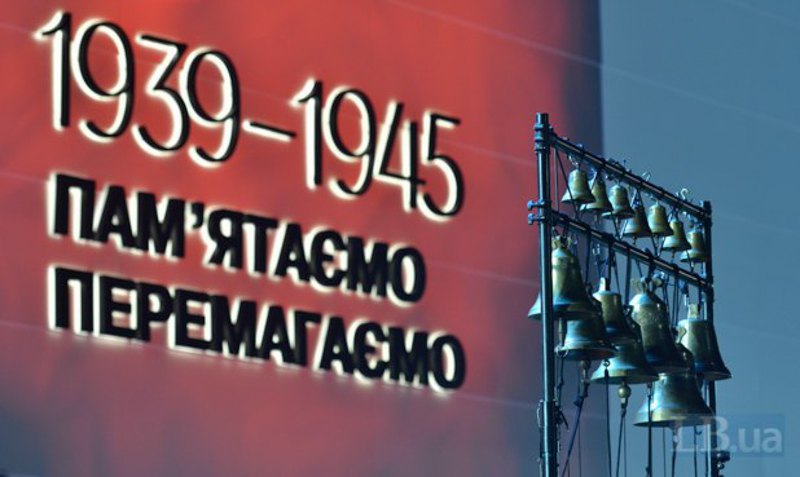
What should we get rid of? Joint holiday with russia. We do not want to march in a joint parade. But is it necessary to see the victory over Nazism only in the register of the holiday and the joint parade?
Let's go to the other side. Does participating in the victory over Nazism prove the moral perfection of the victorious countries? No. Recall the title of the famous post-war article by US diplomat William Bullitt “How we won the war and lost the peace” that the alliance with Stalin was justified by the need to defeat Nazism, but required extreme vigilance in building post-war relations. The West lost the peace by satisfying the manipulative demands of the totalitarian state, implementing the principle of “the winner is not judged”. With the victory over Nazism, the USSR was able to hide from accusations of political repression. Bullitt knew what he was saying because he was the first US ambassador to the USSR.
Bullitt's vision of understanding winning war and losing peace has not become mainstream. But it is important that it was. This is exactly what happened to Ukraine: in a situation of global war, it is a loss of peace. Perhaps this is the key to domestic work on the theme of victory in World War II. Unlike the victorious states, Ukraine did not have the opportunity to influence on losing or winning the peace.
Words are important: what stories unfold in different terms?
When russia says “we are the only victors over Nazism”, Ukraine is ready to answer - choke on your victory, we have nothing to do with it, we just have a change of occupiers. That is, we imagine ourselves as victims, among whom only UPA soldiers had subjectivity. Don't you think that's how we play by russian rules? What would it be?
Ukrainians took part in the victory over Nazism but were deprived of subjectivity in the postwar reorganization of the world. Troops of the 1st Ukrainian Front liberated Auschwitz. We will not oppose Putin with his statements that it was exactly the ethnic russians who fought in the fight, it does not worth it. In general, when Ukrainian viewers watch “Unbreakable” or “Haytarma”, it is already about modern collective memory, not about the Soviet heritage.
When we say this to the world, the world understands. That is why, for example, in 2015, the President of Ukraine took part in the memorial events for the liberation of the Auschwitz concentration camp (unlike the President of russia, who at that time already headed the aggressor country). But we have to keep saying it, or russia will continue to speak for us.
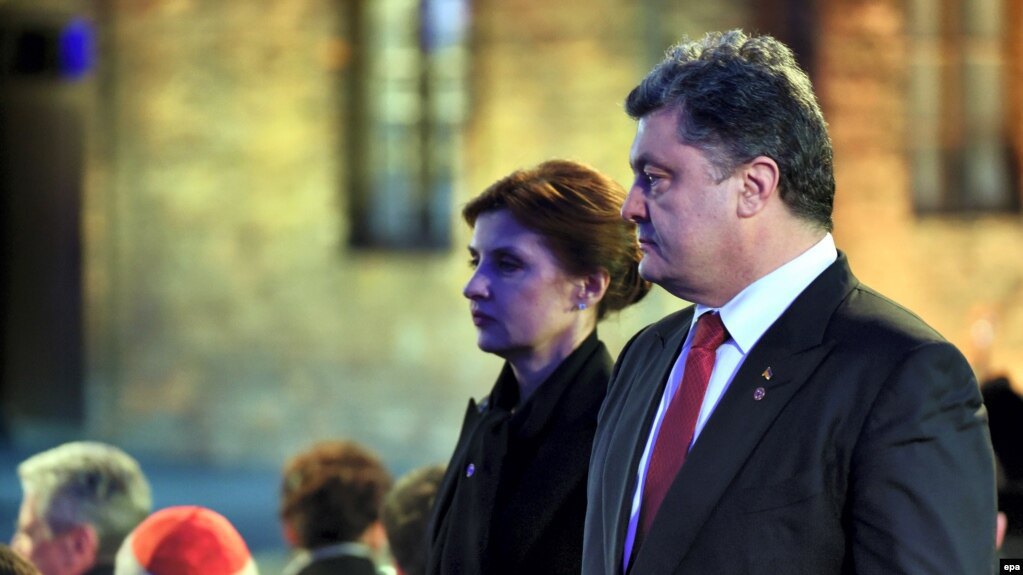
We must build Ukraine not like non-russia. We must build it in another way. In this context, the question is: are we ready to give the victory over Nazism to russia in order not to be in the same team with russia? And what has russia done for us to give russia such generous gifts?
For Ukraine, the theme of victory over Nazism is tragic, it is no fanfare. Recognition of one's own subjectivity in the victory over Nazism does not negate the fact that one occupation changed to another. Collective memory has more registers than unidirectional glorification. Sometimes the main note of commemoration can be grief, reflection, and the intention to see different experiences. Emotionally, it is no less powerful than unanimous glorification. The sincere faith of some in their own mission of victory over Nazism existed in parallel with the crime against the “black jackets” and with the desperate defense of the chance for Ukraine's independence by others. This is a truly tragic experience. We cannot afford one-dimensional vision. And we cannot allow the events of the Second World War to turn into weapons against us.
In the memory of the victory over Nazism, it is worth clearing Soviet mythological paths, even at the level of the words we use. Because words send us to different worlds. So, for us, this is not a Great victory, but a victory over Nazism. The great victory is about the timeless victory of the common Soviet us (with an emphasis on the “russian soldier”) over the world`s evil. The narrative of the “Great Victory” can include anything from Afghanistan and Chornobyl to the attack on Ukraine. “Victory over Nazism” is a point in history when specific allies defeated a specific criminal state. A specific date with the specific historical content. It is necessary to remember this event in all its complexity and tragedy.
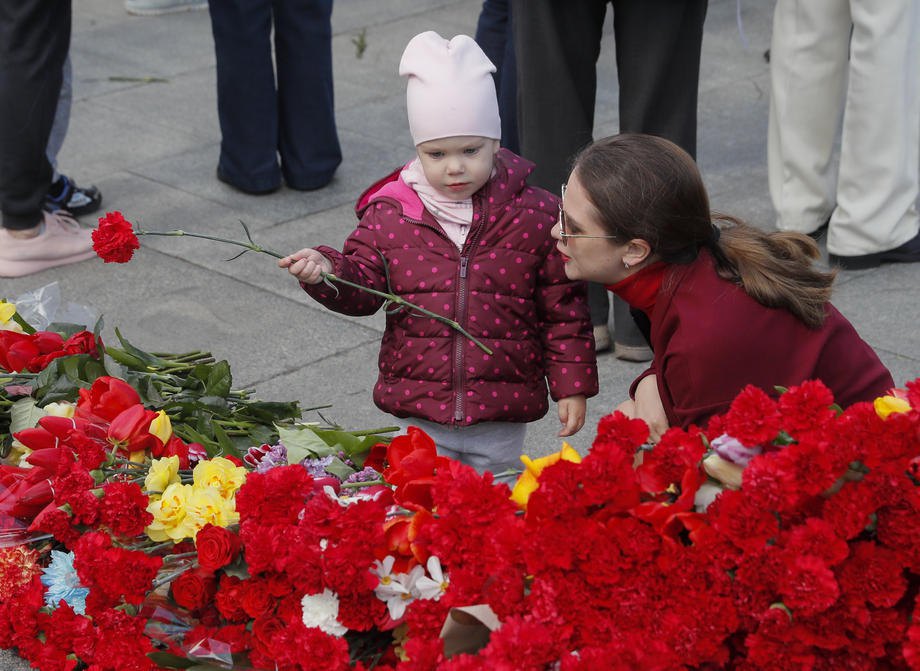
Not the Great Patriotic War, but the Second World War. We are used to not using the concept of the Great Patriotic War, but suddenly the realities of large-scale war bring the old concepts into a new context - we have heard many times during these months: now there is a real “patriotic war”. I think that's how the remnants of the Soviet worldview come out of us - the “right” war must be a “great patriotic” war.
At the subconscious level, sometimes a modern Ukrainian finds himself at work with military stamps that have been understood since childhood. A colleague who spent more than a month in the occupied territories shared a sudden discovery: several times, seeing the russian military, she caught herself thinking “There are Germans!”. Because the usual images from the half-forgotten Soviet film about the Germans can jump out of my head. Now they are burning with the fire of modern war.
Victory Day over Nazism does not have to be a paroxysm of heroic glorification. Not a holiday with tears in the eyes, but a day of remembrance, sorrow, and reconciliation (reconciliation not with enemies, but within one's own society about the past and future). For Ukraine now, a “hero on the battlefield” is not a reminder of the past. The memory of the events of May 1945 is a memory of the world`s victory over Nazism, a terrible tragedy, a post-war reboot of the world - and of leaving “bloody lands” on the marginalis of attention.
We have a huge legacy of the USSR - a vision of a memorable date exclusively in the register of unconditional glorification. Despite the fact that in our own memorial tradition we have, for example, April 26 - this date is important, but not festive. By the way, the Soviet habit of determining only “glorious” dates sometimes leads to absurd reservations such as “celebrate April 26”. Because the “red date” is a fanfare and glorification of sacred heroes. Victory Day over Nazism gives us the opportunity to develop a new way of working with the past and get rid of the extremes of Ukrainian politics of memory - the heroic narrative and the victim narrative.
The fire of the current war burns the remnants of Soviet narratives. Rockets that have remained since Soviet times are flying at us. The remnants of the long-dead Soviet Union explode on Ukrainian soil, taking Ukrainian lives. The union must become the past, which we treat as the past. Modern russia, which is only pretending to be the Soviet Union, is at war with Ukraine. This is another evil that has yet to be defined. When we build relationships with the past, which is important, we must not be mistaken with a view to the present.







